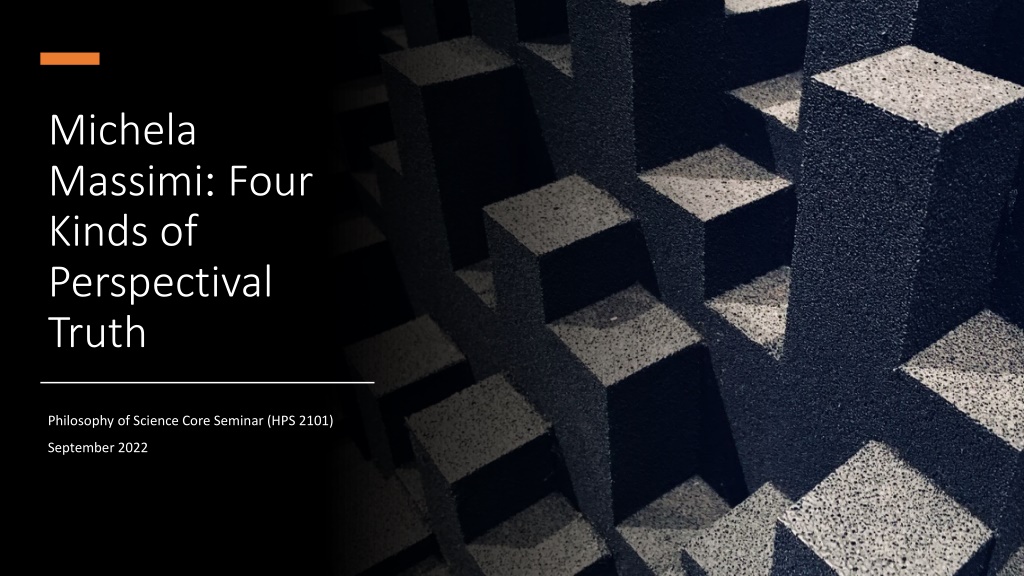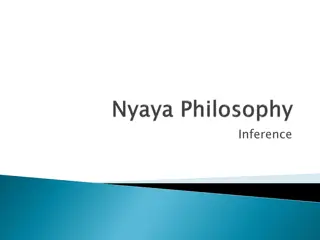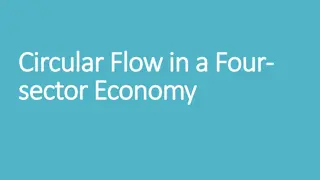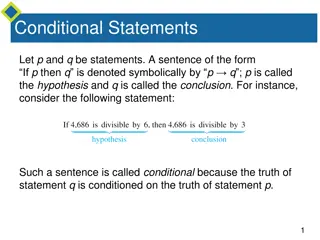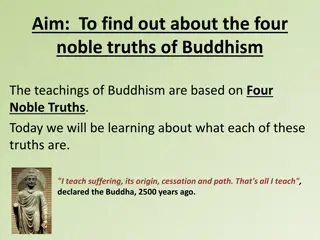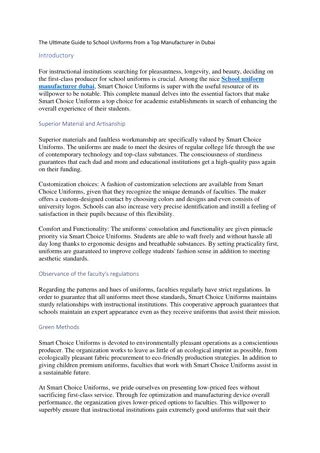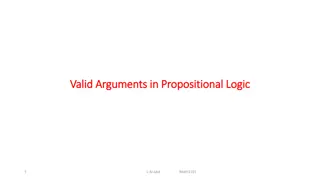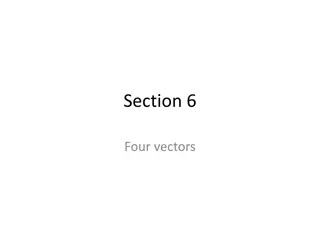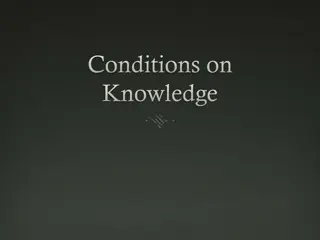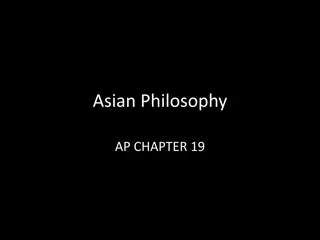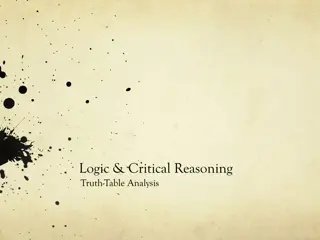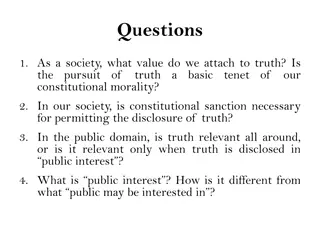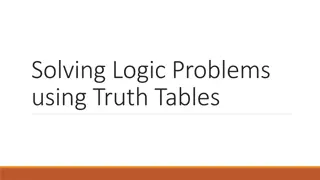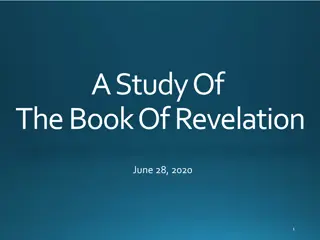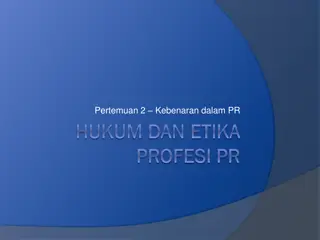Michela Massimi : Four Kinds of Perspectival Truth
Michela Massimi delves into the concept of perspectival truth, discussing how scientific knowledge claims are both situated and perspective-dependent, while states of affairs are perspective-independent. She highlights the central thesis of perspectival realism and the significance of minimal realist commitment in understanding scientific perspectives.
Download Presentation

Please find below an Image/Link to download the presentation.
The content on the website is provided AS IS for your information and personal use only. It may not be sold, licensed, or shared on other websites without obtaining consent from the author.If you encounter any issues during the download, it is possible that the publisher has removed the file from their server.
You are allowed to download the files provided on this website for personal or commercial use, subject to the condition that they are used lawfully. All files are the property of their respective owners.
The content on the website is provided AS IS for your information and personal use only. It may not be sold, licensed, or shared on other websites without obtaining consent from the author.
E N D
Presentation Transcript
Michela Massimi: Four Kinds of Perspectival Truth Philosophy of Science Core Seminar (HPS 2101) September 2022
The Main Thesis It is possible to be realist about science, while also taking on board the situated and perspectival nature of our scientific knowledge claims.
Central Thesis of Perspectival Realism States of affairs about the world are perspective-independent; whereas our scientific knowledge claims about these states of affairs are perspective dependent.
Perspectival Truth Provides the missing link between perspective- independent states of affairs and perspective- dependent knowledge claims.
Minimal Realist Commitment A commitment that proves resilient to challenges from the history of science, or rival inconsistent models in contemporary science. Getting things right is at the heart of the realist programme. Getting things right is not the aim of science, because it is not what science should aspire to. Instead, it is what science ought to do by realist lights.
The Unqualified Version (P) Perspective-dependence. Knowledge claims in science are dependent on a given historically and/or intellectually situated scientific perspective.
First Version (Propositional Contents) (P1) Perspective-dependence1. Knowledge claims in science are perspective- dependent1when their propositional contents depend on the scientific perspective in which such claims are made. (P1) captures what might be called a form of perspective-indexicality.
Second Version (Truth- values) (P2) Perspective-dependence2. Knowledge claims in science are perspective- dependent2when their truth-values depend on the scientific perspective in which such knowledge claims are made. (P2) captures a form of perspective-relativity.
(P3) Perspective-dependence3. Knowledge claims in science are perspective- dependent3 when their truth-conditions depend on the scientific perspective in which such claims are made. (P3) captures a form of perspective- sensitivity Third Version (Truth- conditions)
Forth Version (Truth-conditions+) (P4) Perspective-dependence4. Knowledge claims in science are perspective-dependent4 when their truth-conditions depend on the scientific perspective in which such claims are made. Yet such knowledge claims must also be assessable from the point of view of other (subsequent or rival) scientific perspectives. This switches from the context of use, to the context of assessment.
Each scientific perspective functions then both as a context of use and as a context of assessments. Knowledge claims in science that continue to be found (from the point of view of a new scientific perspective) as still performing adequately, can be said to be true across scientific perspectives and regarded as getting things right . Context of Assessments How this can be a standard for truth when other perspectives are not reached independently? Does it address the issue with realism from pessimistic meta induction?
Contextual truth-conditions should be understood in terms of standards of performance-adequacy that a scientific knowledge claim has to satisfy. Examples: Accuracy with respect to fundamental mathematical equations; Empirical testability within the limits of well- defined tests; Projectibility and heuristic fruitfulness across a variety of engineering practices. Standards of Performance- adequacy Why testability and fruitfulness should be considered a standard in this context?
Gems and Coals The thesis is interesting but how much is it novel? Given the subtle nature of the distinctions between these perspectives, overall, she manages to remain clear. In many cases she mentions a new or a better formulation of the conclusion from the past section in the introduction of the next section!
